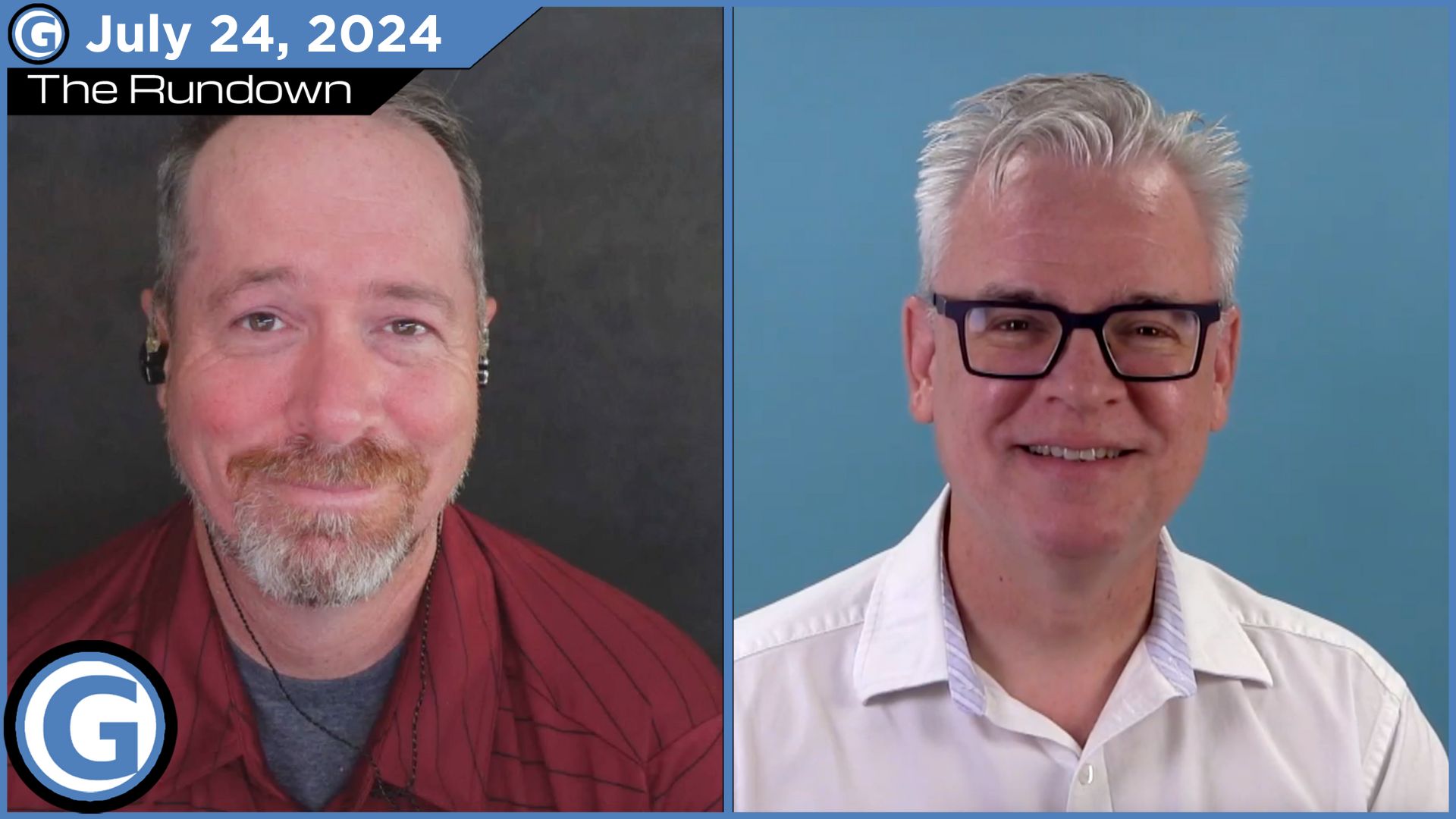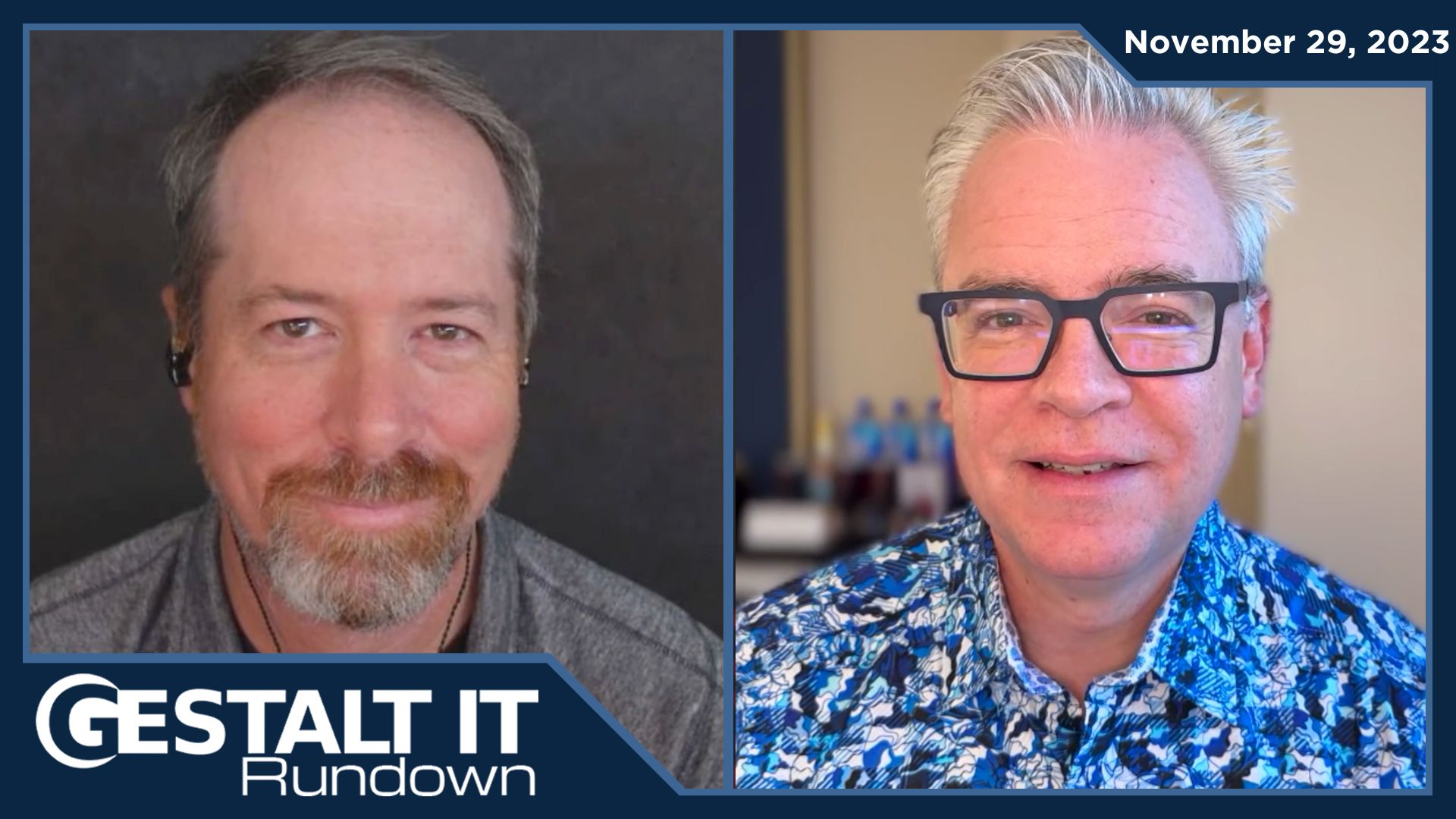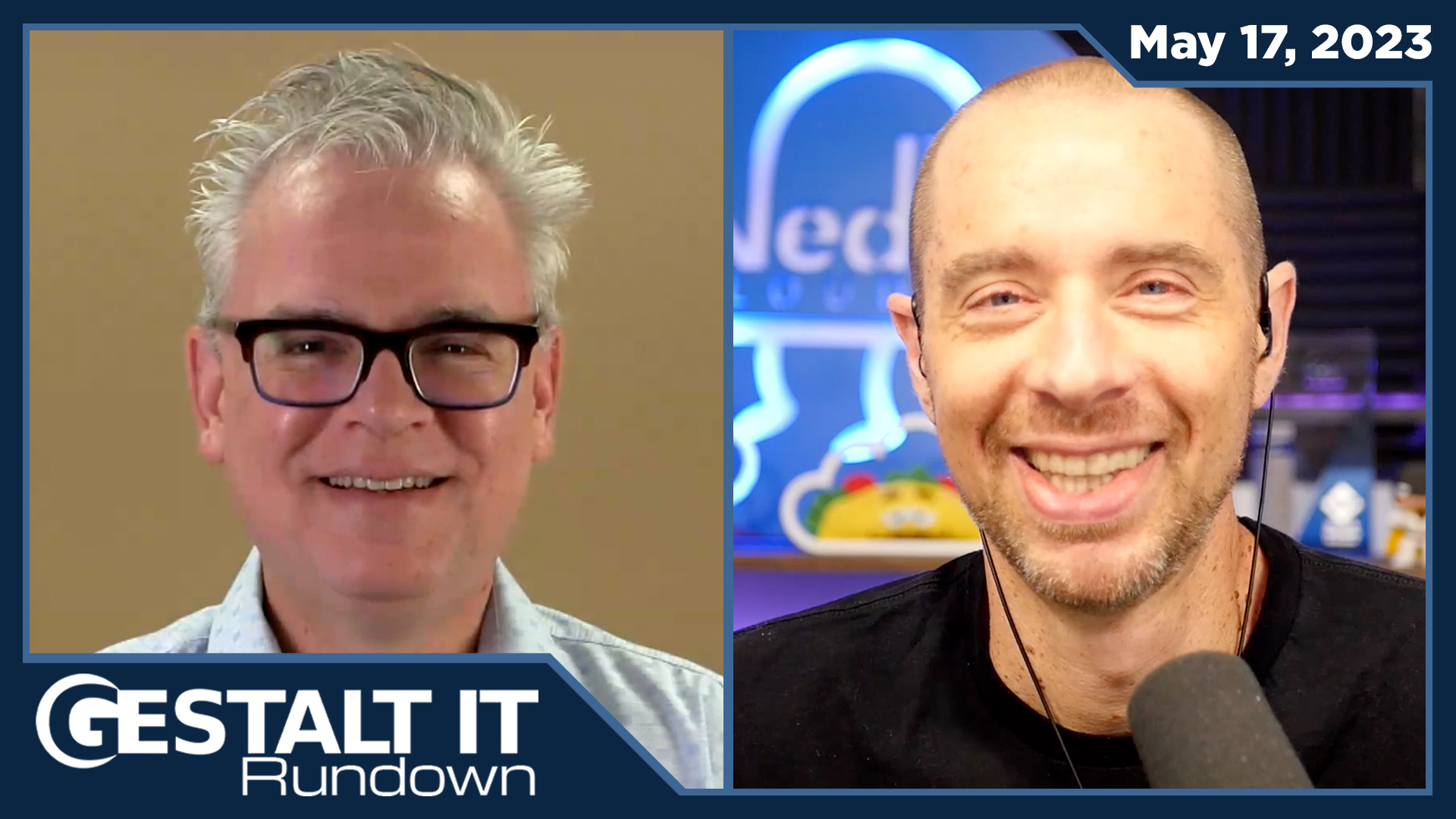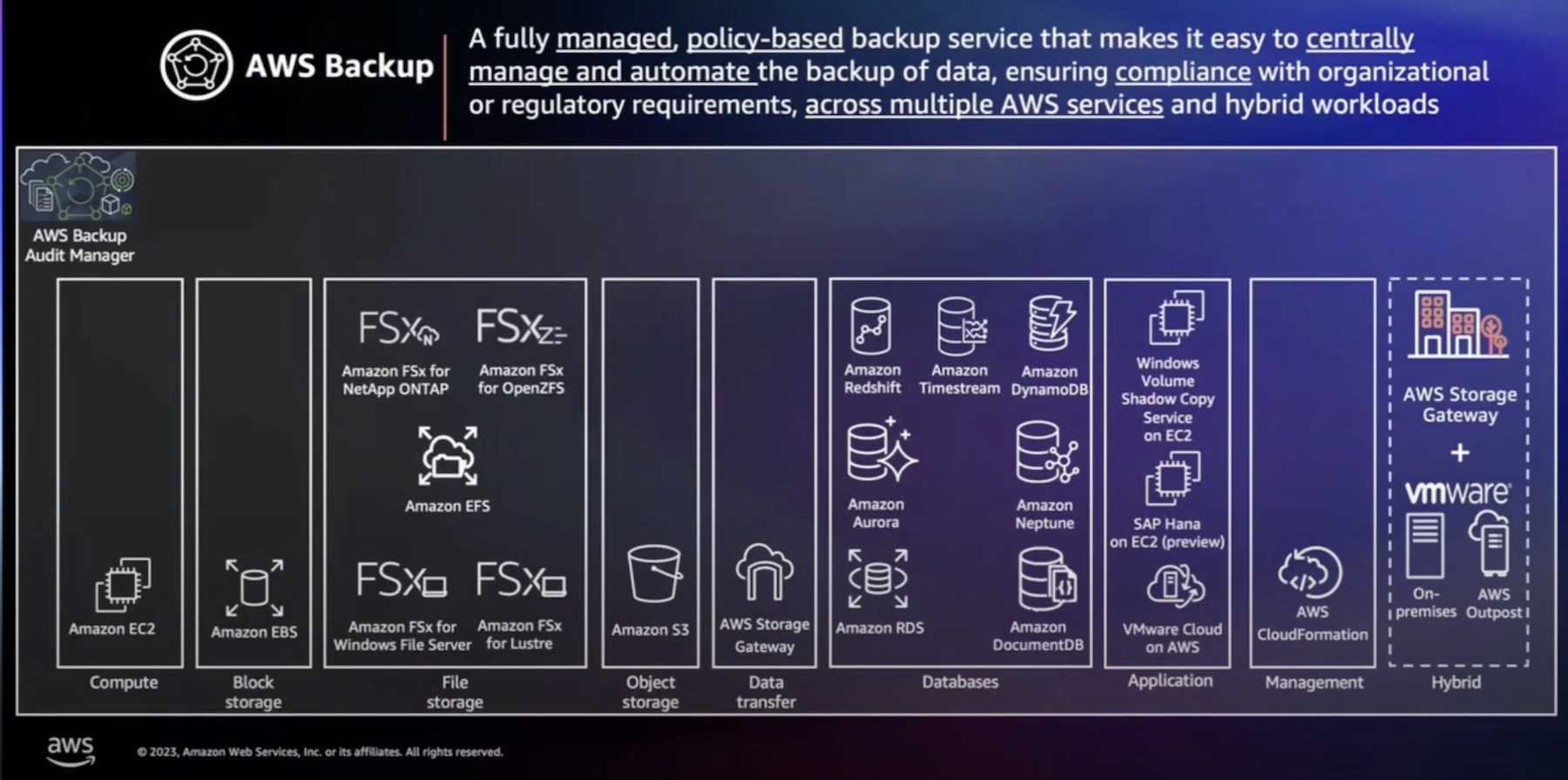Amazon launches the Aeronautics and Satellite Solutions to go to space, Salesforce tries to remove gender bias from AI, and Microsoft launches initiatives to upskill the economy. All this and more IT news of the week with Rich Stroffolino and Tom Hollingsworth on the Gestalt IT Rundown.
This week on the Rundown:
H-1B Visas Suspended
1Password Breach Reports
Huawei and ZTE Declared National Security Threats
Salesforce Anywhere?
Salesforce launched a beta of Salesforce Anywhere, which brings together chat, alerts, comments and video into its CRM suite in a unified view. The idea here is to allow for more to get done in Salesforce with less hopping to other apps, awkward screensharing and more seemless collaboration. But given how many organizatons live with their comms mostly already in Salesforce, it also feels like a shot across the bow to something like Slack.
CCPA In Effect?
The California Consumer Privacy Act or CCPA went into effect on January 1st, with the state offering a 6-month grace period before enforcing. With the disruption from the COVID-19 pandemic, many industry groups had asked the state to extend the grace period, but California Attorney General Javier Becerra said the law would start being enforced as scheduled starting today. The law still required consumers to submit privacy complaints, where the state will send warnings giving 30 days to fix issues before issuing fines or other penalties.
Confidential Computing Consortium Adds Members
The Linux Foundation-back Confidential Computing Consortium announced a few big name new members, including Facebook, Nvidia, AMD, and Accenture. They join the founding members that include Microsoft, Arm, Google, IBM., and Intel, and will work on creating a standard to encrypt data while being processed in memory. The organization has already build a open-source framework called the Open Enclave Software Development Kit, that can be used to create Trusted Execution Environments across computing environments.
AWS IN SPACE
On Tuesday, Amazon officially launched its AWS Aeronautics and Satellite Solutions business unit, which will “provide secure, flexible, scalable, and cost-efficient cloud solutions to support government missions and companies advancing space around the world,” This isn’t Amazon’s first foray into space, having launched Ground Station in 2018 to link cloud data centers with antennas in space, and Amazon CEO Jeff Bezos also heads Blue Origins for commercial space flight. This seemed to be positioned as a edge computing use case. providing lower latency ML and AL processing to things like satellites vs sending data back down to an earthbound cloud data center. AWS says some of its initial customers plan to use it for real-time surveillance systems, which could improve the efficiency of farflung shipping operations and improve weather detection capabilities, and not for anything unsettling.
Microsoft Upskills the Economy
Microsoft announced a number of new initiatives to help displaced workers and employers operate in the pandemic economy. Using its LinkedIn Economic Graph that aggregates employment data, Microsoft is offering a new portal to show skill gaps in the employment market, showing what skills are in demand and paying the most, with localized data across 180 countries. This also includes a list of the 10 most in-demand jobs. Microsoft also launched free “learning paths’ that feature skills to get these jobs, that will be available through March 2021, and will lower Microsoft certification exams from $100 to $15 through that same time.
Removing Gender Bias from AI
Researchers from Salesforce and the University of Virginia published a paper with a new way to mitigate gender bias in datasets used to train AI. PRevious attempts to do this have tried to substract components associated with gender in post-processing after training, but is prone to being reintroduced as the model gets used. The researchers instead used Double-Hard Debias, which transforms semantic and syntactic meanings of words and relationships with other words into a “subspace” that can be used to find the dimension that encodes frequency information distracting from the encoded genders. With this information it can “project away” the gendered component. This effectively helps build the model without the bias from the ground up, rather than trying to direct traffic in an AI model with bias in it.
The Gestalt IT Rundown is a live weekly look at the IT news of the week. It broadcasts live on YouTube every Wednesday at 12:30pm ET. Be sure to subscribe to Gestalt IT on YouTube for the show each week.




